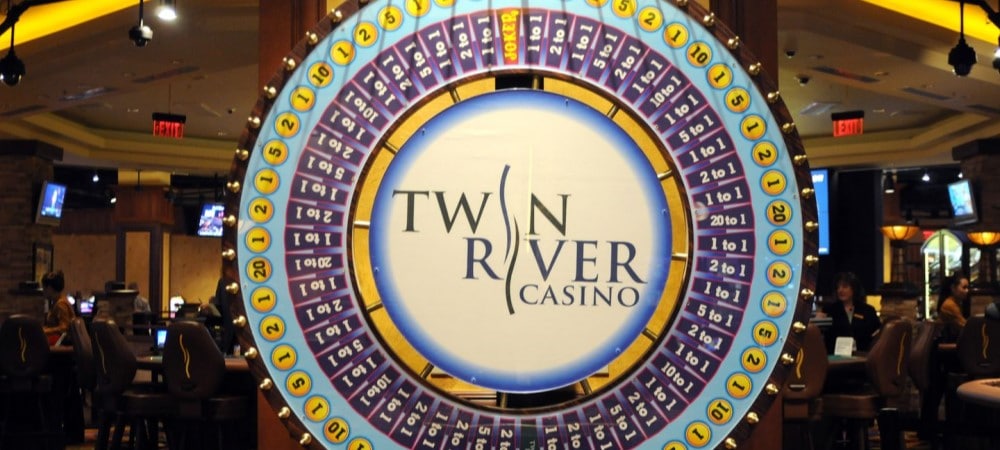- Rhode Island lawmakers initially budgeted for $22.7 million in tax revenue from sports betting.
- Despite a recent uptick, the state is set to fall nearly well short of expectations.
- With the NFL season ending this week, revenue is set to decrease drastically.
PROVIDENCE, R.I. – While Rhode Island’s casinos saw a flurry of activity in the closing months of the 2019 NFL season, the state is still looking at a $14 million shortfall on its sports betting tax projections.
The first bad omen for the state came in February 2019, when a New England Patriots upset victory in Super Bowl LIII caused sportsbooks in the state to combine for $900,000 in net losses, but even without that blip, total revenues would have fallen woefully short of a $44.5 million projection.
Even after removing the February anomaly, the average monthly revenue of sportsbooks in Rhode Island would have resulted in just over $9 million in tax collections for the state—only 33.5% of what was budgeted. In the wake of that disappointment, state legislation may need to make changes.
Exploring Possible Causes of Missed Sports Betting Projections
That disastrous February is an easy scapegoat for legislators, but it certainly isn’t the reason budgetary projections were so inaccurate. Sportsbooks in the state still took home 7.02% of all wagers as revenue, slightly above the national average of 6.85%.
A more likely candidate is the state’s 51% tax on sports betting revenues, the highest such tax in the United States. Despite its branding as “revenue sharing”, this policy still represents a huge imbalance in benefits for the state versus sportsbook operators.
Over a full year after launching sports betting in November 2018, there are still only two casinos in the state that are licensed to operate sportsbooks, Twin Rivers properties in both Lincoln and Tiverton.
Sports betting already presents limited profit margins compared to table games and slots. Therefore, slashing the books’ profits in half has made the two casinos hesitant to invest the high overhead costs necessary to keep up with the “neighboring” Atlantic City sportsbooks and products offered in New Hampshire.
Another hurdle to increasing revenues is the state’s requirement that bettors register an account in-person at one of the two licensed casinos before they can place wagers online. For many of the state’s bettors, sportsbooks that are licensed overseas present a more convenient alternative.
Future Outlook for Rhode Island Sports Gambling
Despite all these unfortunate results, there are some positive signs for Rhode Island moving forward. October and November both saw record highs for both total sports betting handle and revenue.
The state is on pace to take in $10.8 million in revenue during the NFL regular season, equating to $5.5 million in taxes. However, stretched out over a full year, this figure would still fall 27% short of projections, but it represents a notable improvement over past months.
With no other casinos in the state, changing the state’s tax policies may allow them to keep a larger share of revenues generated, or until one of the existing operators begins to see consistently high returns.
Rhode Island is only an hour away from Boston, one of the most lucrative professional sports markets in the country. Massachusetts has introduced a sports betting bill of its own, so the window is closing if Rhode Island wants to establish itself as a regional market leader.
Super Bowl LIV represents a prime opportunity for the industry to grow within the state, but it remains to be seen if the two casinos will be able to capitalize.
Advertising Disclosure
In order to provide you with the best independent sports betting news and content LegalSportsBetting.com may receive a commission from partners when you make a purchase through a link on our site.
News tags: Lincoln | New England Patriots | Revenue Sharing | Rhode Island | Tiverton | Twin Rivers

With a dual background in English and sports performance and business analytics, Carter aims to write stories that both engage and inform the reader. He prides himself on his ability to interweave empirical data and traditional narrative storytelling. When he isn’t keeping readers up to date on the latest sports betting legal news, he’s banging his head against a wall regretting his decision to be a Tampa Bay Buccaneers fan.


 Bitcoin Sports Betting Sites
Bitcoin Sports Betting Sites Best Online Sports Betting
Best Online Sports Betting Famous Sports Bettors
Famous Sports Bettors States With Legal Sports Betting
States With Legal Sports Betting Sports Betting Events
Sports Betting Events




